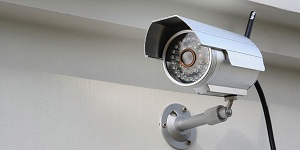The ministry of electronics and information technology (Meity) has placed smart watches and CCTV cameras under its scanner in a bid to stem the flow of sub-standard and unsafe electronic goods into India. On 17 August, Meity added 13 electronic items, including smart watches and CCTV cameras, to the Electronics and Information Technology Goods (Requirement for Compulsory Registration) Order, 2012, which means these will now have to meet standards as notified by the government and companies will not be allowed to import or sell any non-compliant product in the country.
The other products—LED flood lights, LED lighting chains, Plasma/LCD/LED television of screen size up to 32 inches, CCTV recorders, USB driven barcode readers, barcode scanners, iris scanners, and optical fingerprint scanners—have been brought under the ambit of Compulsory Registration Order (CRO), a government official confirmed.
The provisions of the 17 August order will be applicable to these devices after February 2018.
In August, the ministry had asked 35 smartphone makers, mostly Chinese, and Alibaba-owned UC Browser to furnish details on data security. On 31 August, Mint reported that Meity is working to tighten quality standards to prevent the sale of spurious electronic goods and block data breaches in India. The industry, however, sees flaws in this decision. An expert believes that the CRO should focus on safety of products that pose the greatest risk to consumers. This in turn would impact the ease of doing business in India.
“Companies are still struggling with delays in the CRO approval process resulting from bottlenecks at test labs. The addition of visual display units and video monitors with a screen size up to 32 inches alone would include over 200 separate models with multiple SKUs (stock keeping units). With India’s labs lacking the capacity to perform testing of this magnitude in a timely manner, there will be further delays in getting these essential products approved and into the hands of consumers,” said Joshua Rosenberg, director, global policy, Information Technology Industry Council (ITI), an advocacy and policy organization, in an emailed response.








